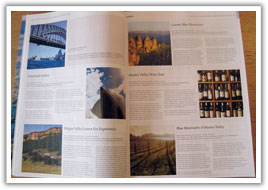Travel Regulation & Consumer Protection
As the amount of travel and holidays taken have increased over time, it has been necessary to produce regulations and schemes which aim to protect consumers if the organisation providing their travel goes out of business, or if something else goes wrong.

Schemes such as ABTA bonding, ATOL licenses and European Union Package Regulations are prime examples of the procedures set in place to help protect the money which has been paid by consumers for their holiday or travel.
Despite these schemes, there is still some confusion relating to the precise arrangements for protecting consumers’ money and the picture is not always totally clear.
A travel agent such as Travel Stop can do one of three things when selling travel products.
- Travel Stop can sell a complete 'package' on behalf of a tour operator.
- Travel Stop can sell individual items, such as flights or accommodation on behalf of an airline or accommodation provider.
- Travel Stop can create and sell a package, involving flights, accommodation and other items, to members of the public.
Travel Stop has different responsibilities and liabilities in each of these circumstances.
The selling of a package holiday is covered by EU Package Travel Regulations
What is a ‘package’?
A package is a pre- arranged set of travel services sold or offered for sale at an inclusive price covering a period of more than 24 hours or including an overnight stay and which combines at least two of the following:
- Transport
- Accommodation
- Other tourist services not related to transport or accommodation which account for a significant proportion of the package price. (e.g. transfers)
How does Travel Stop conform to the requirements of the
EU Package Travel Regulations?

- Travel Stop sells packages using reputable tour operators.
- Travel Stop ensures that the brochure details are checked for accuracy.
- The Tour Operator creates the package and is responsible for conforming to the regulations (not the travel agent).
The information below illustrates the legal relationship between customer, travel agent and tour operator. It's important to understand that the contract to provide the package is between the tour operator and the customer. The travel agent is simply that – an agent.
A Travel Agent provides an outlet for the Tour Operator’s products. The agent won’t enter into a contract with the customer, but will arrange for the customer to enter into a contract with the Tour Operator. The key features of a Travel Agent include:
- owing a duty of care to the Tour Operator
- owing a duty of care to customers
- an obligation to account to the Tour Operator
- remuneration by commission rather than by way of private profit
- marketing and promoting the Tour Operator's products
- authority to collect payment, and apply and collect cancellation fees on behalf of the Tour Operator
As a travel agent, there is no legal requirement to offer financial protection for customers.
What are the advantages of booking a package holiday through
an independent agent such as Travel Stop?
Travel Stop is independent and not linked to any of the large travel conglomerates, so is able to concentrate on finding the best holiday at a competitive price.

Travel Stop is fully bonded so clients' money is safe.
Travel Stop is a member of:
- ABTA - Association of British Travel Agents
- IATA - International Air Transport Association
- ATOL - Air Travel Organisers’ Licensing
- AITO - Association of Independent Tour Operators
- ACE - Association of Cruise Experts
Travel Stop is a member of ABTA and has a licence which means that:
- Travel Stop ensures that the public receive the best possible service
- Travel Stop maintains and enhances the reputation of ABTA
- Travel Stop promotes the good name and standing of ABTA and its members
- Travel Stop adheres to the ABTA Code of Conduct as an agent
It is a condition of ABTA membership that Travel Stop provide ABTA with a bond or some other form of security.
What does ABTA bonding mean?
A bond is similar to an insurance policy. It's a formal undertaking from an approved bank or insurance company to pay a sum of money to ABTA in the event of a travel agent’s financial failure. The main purpose of the arrangement is to reimburse customers who would otherwise lose money which they had paid to the travel agent.
Why is this necessary?
Mainly because if a client has paid money to a travel agent, who goes out of business before passing the client’s money on to the tour operator, the client might lose the money.
Activity 1
Use the link to the ABTA website below to explain the following terms:
http://www.abta.com/join/member_introduction/financial_protection
- Agent
- Principal
- Financial Protection
- Bond
Activity 2
How is the money customers have paid for their holiday protected?
When is a travel agent a package organiser?
If a travel agent such as Travel Stop sells a tour featured in a brochure, or sells a tailor-made holiday from a tour operator, they are not creating a package holiday and the tour operator has to provide financial protection by obtaining an ATOL licence.
If a travel agent such as Travel Stop sells two travel services together (such as flight and accommodation) for one price, they are creating a package and are obliged to provide financial protection by obtaining an ATOL licence.
What is an ATOL (Air Travel Organisers Licence)?
ATOL protects customers from losing their money or being stranded abroad. It does this by carrying out checks on the tour operators and travel organisers it licenses, and requiring them to take part in a financial guarantee scheme managed by the Air Travel Trust (ATT) which provides the funds to protect customers should a firm fail.
If a tour operator goes out of business, the CAA will ensure customers do not lose the money they paid, or if they're abroad, will arrange for them to finish their holiday and fly home.
Individual airlines are not covered by ATOLs, so if a flight is bought directly from an airline, which ceases operating, the customer may not be protected.

Further information about ATOLs can be found at:
http://www.caa.co.uk/default.aspx?catid=1080&pagetype=90
Activity 3
The link below is to a set of FAQs about how the ATOL system works.
For each of the FAQs summarise the answers provided.
http://www.caa.co.uk/default.aspx?catid=1080&pagetype=70
Activity 4
More travellers now book and buy their travel through the internet to create independent holidays, rather than book through travel agents and tour operators.
The link below provides information about the risks of what the CAA calls 'DIY holidays'.
http://www.caa.co.uk/default.aspx?catid=1080&pagetype=90&pageid=6453
Use the link to produce a presentation which identifies the advantages and disadvantages of booking through a travel company with an ATOL.
Activity 5
You should now be able to explain the difference between an ABTA bond and an ATOL licence.
What is Directive 90/314/EEC?
Many of the current regulations relating to the sale of package holidays stem from the European Union Directive on the sale of package holidays.
An explanation of this directive is shown below.
http://ec.europa.eu/consumers/cons_int/safe_shop/pack_trav/index_en.htm
The Council Directive 90/314/EEC on package travel, package holidays and package tours
The Directive is designed to protect consumers who contract package travel in the EU. It covers the sale of a pre-arranged combination: Consumers are covered where at least two of these elements are sold or offered for sale at an inclusive price and the service covers a period of more than twenty-four hours or includes overnight accommodation.
The Directive contains rules concerning the liability of package organisers and retailers, who must accept responsibility for the performance of the services offered. There are some exceptions, for example cases of "force majeure", or similar circumstances which could be neither foreseen nor overcome. However, even in these cases the organiser must use his best endeavours to help consumers. The amount of compensation payable may be subject to certain limits but not to an unreasonable degree.
The Directive also prescribes rules on the information that must be given to consumers at different points in time. It contains specific requirements with regard to the content of brochures, where these are issued. For example, any brochure made available to consumers must indicate clearly and accurately the price, destination, itinerary and the means of transport used, type of accommodation, meal plan, passport and visa requirements, health formalities, timetable for payment and the deadline for informing consumers in the event of cancellation.
Consumers are entitled to cancel the contract if the organiser seeks to change the essential elements of the arrangements agreed. During the 20 days prior to departure the price stated in the contract cannot be increased.
There are provisions specifying the consumers' rights if, after departure, a significant proportion of the services contracted for is not provided or the organiser and/or retailer fail to perform in line with their obligations arising from the contract.
The Directive also contains provisions on the security to be provided by operators and covering repayment of the price and repatriation of consumers in the event of the operator's insolvency.
Activity 6
Summarise the EU Directive on the sale of package holidays in a presentation of up to 10 slides.
Summary
- There is a range of legislation and regulations governing the sale of package holidays and travel.
- Generally, travel agents selling the products of tour operators tend to be members of ABTA and are covered by a bond arrangement.
- Tour operators selling packages involving air travel are covered by an ATOL.
- Flights bought directly from airlines are not protected in the same way.